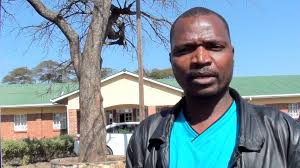By Byron Mutingwende
The empowerment of women is critical for development hence the need to promote social accountability and transparency in public finance management.
The sentiment came to the fore during a media engagement exercise organised by the Zimbabwe Coalition on Debt and Development (ZIMCODD), meant to connect journalists with the communities and raise awareness on social and economic justice issues as they concern women through tours in Chitungwiza, Norton and Goromonzi.
In his introductory remarks at the meeting that was held at Utano Community Hall in Chitungwiza, Tinshe Gumbo said the ZIMCODD‘s Women Engagement in Economic Governance (WEEG) project started in 2016 as a way to address the engrained exclusion of citizens, especially women, in economic governance.
“The organisation has noted that women have potential to influence policies although their full participation has been hindered by inadequate information and the patriarchal nature of our society. Although the Constitution of Zimbabwe makes provisions for Social and Economic Rights (SER) in Chapter 4 the majority of Zimbabweans especially women and girls are not conversant with its provisions and how they can monitor their fulfillment,” Gumbo said.
He bemoaned the fact that the citizens of Zimbabwe in both rural and urban areas are failing to enjoy their Constitutional rights due to poor public resources management yet the participation of women in economic governance is critical to achieve broad-based development.
Sheryl Chigwedere from Chitungwiza hailed ZIMCODD for that the including women in economic governance issues.
“In the past, we were not even consulted on issues of accountability on public resources expenditure, especially consultations on budgets by local authorities. As a result, the budgets were usually not gender-sensitive. We hope that with the coming of ZIMCODD with such programmes, our issues will be reflected in the budgets,” Chigwedere said.
She added that women bear the brunt of a failed social service delivery system by the local authorities and other service providers.
“If there is no water, women work much more than they would if it was available. In Chitungwiza, we have endured many years without running water on our taps. Thus, the majority of the women walk long distances to the boreholes, increasing their burden since they are usually the ones who cook, wash clothes and work the fields,” Chigwedere said.
Emilda Mabidori weighed in saying that electricity load shedding had become a thorn in the flesh for the women.
She implored local authorities to explore alternative form of energy like solar and biogas in order to alleviate the hardships faced by women as in fetching firewood during power outages.
Mabidori also encouraged the government to create employment for the youths. She said that many graduates from colleges and universities had resorted to drug abuse because of docility arising out of unemployment.
In Goromonzi, Headman Kufandada Musonza said that training of the women by organisations like ZIMCODD improved the capacity of women in constitutionalism, public resource management advocacy and lobbying.
“Such trainings help our women understand issues like gender equity as espoused in the 50-50 Campaign being spearheaded by the Ministry of Women Affairs, Gender and Community Development,” Musonza said.
Mercy Marima, a member of the Women’s Action Group added that such programmes helped women to understand their rights and responsibilities as outlined in the Constitution and other policies by the government aimed at achieving gender parity and equity.
Catherine Chanzi encouraged the Zimbabwe Revenue Authority (ZIMRA) to consult women when coming up with policies around taxation so as to improve their accountability to public finance management.
“We were appalled when ZIMRA imposed the presumptive tax and income tax to women vendors in Goromonzi. Our earnings from vending are far below the tax-free threshold but ZIMRA made us to fill forms for such taxes despite the fact that we are economically hard-pressed,” Chanzi said.
It emerged that if women were trained to appreciate their socio-economic rights as enshrined in the constitution, they would be able to participate in and monitor national local budget performances in relation to the fulfillment of socio-economic rights.






